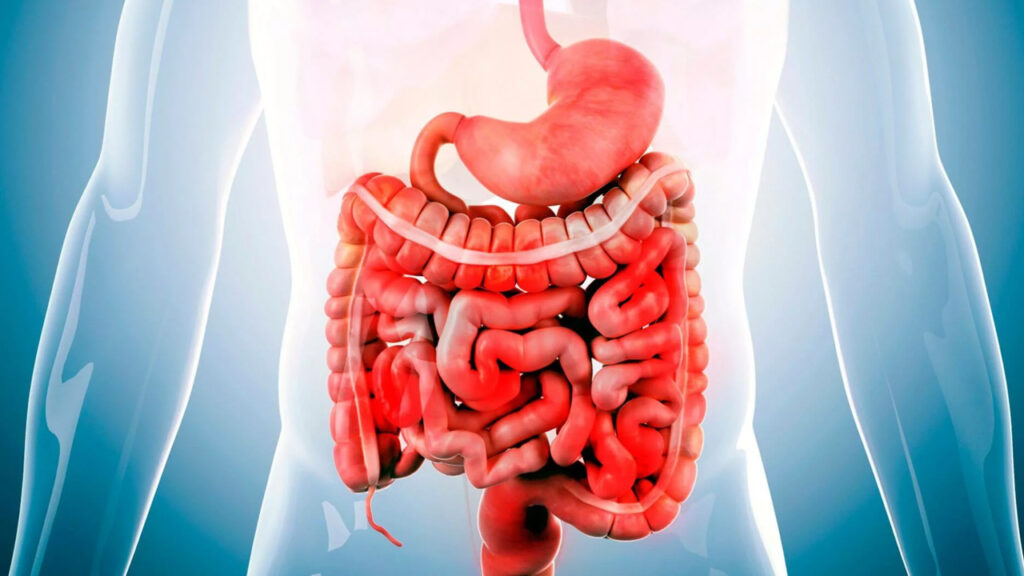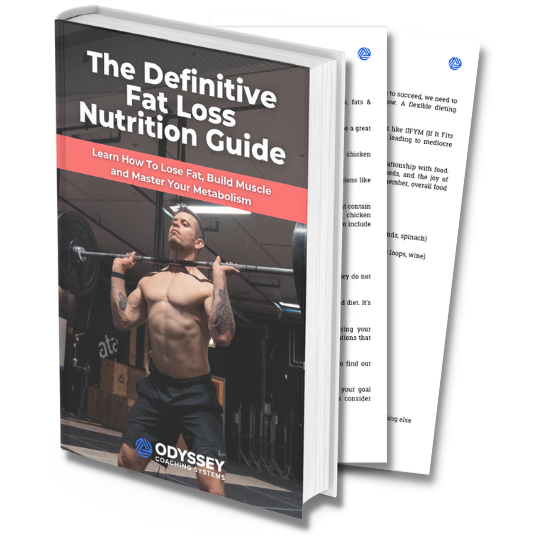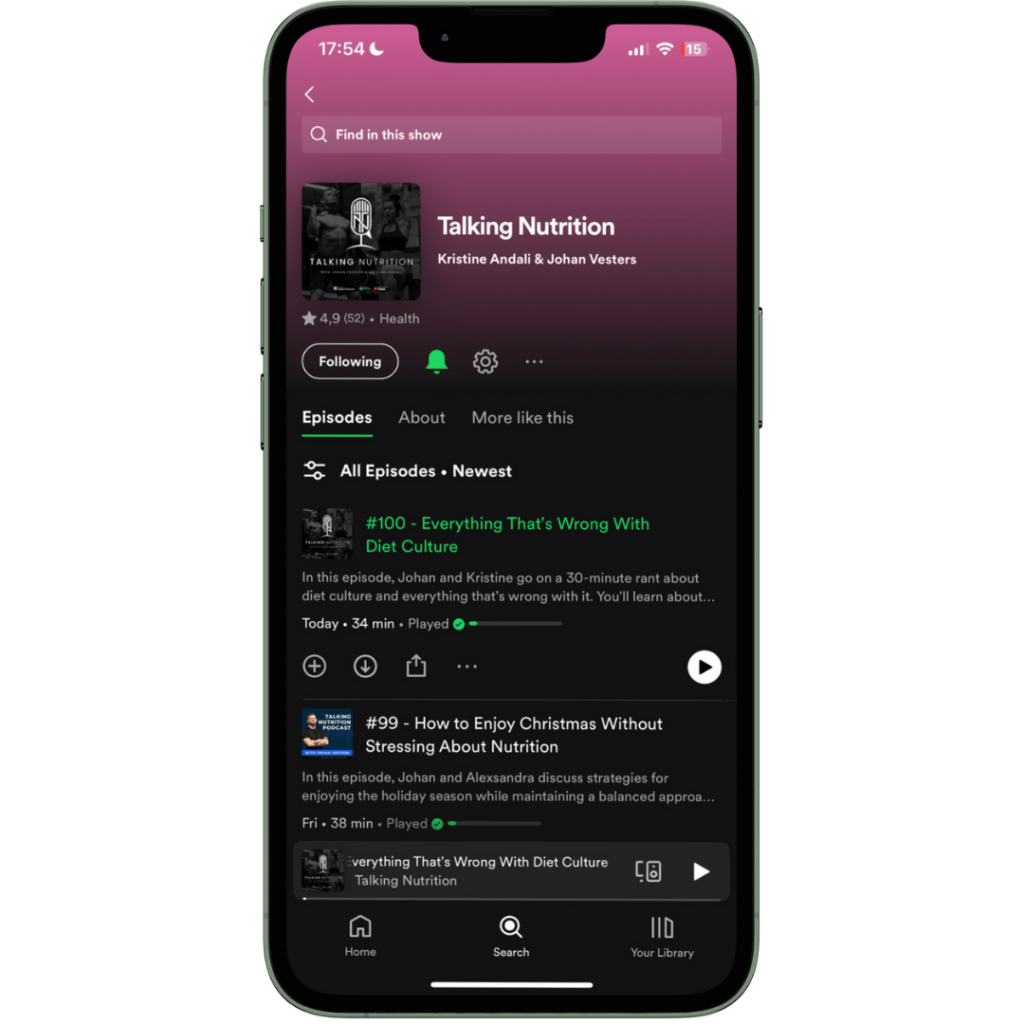Digestive problems are becoming more and more common these days.
From not being able to go to the bathroom or going too often, to dealing with indigestion, bloat, and gas, a messy gut can dramatically impact your well-being and health (including your mental health).
In this article, you’ll learn about 7 effective tips that should help you troubleshoot your digestion and gut health.
Although digestive issues can be complicated to figure out, the research is still in its infancy, and even doctors don’t always know the answers, there’s luckily a lot of basic stuff you can do on your own to at least optimize things.
You’ll be surprised that this article does not include any digestive supplements or friendly-gut-bacteria-feeding foods.
No, instead, let’s first look at your overall lifestyle and eating habits. Because the solution to relieving your digestive problems might just be a super simple one.
Over-exercising can Cause Digestive Problems
General movement and exercise are both super important, and we always recommend a healthy combination of walking, weight lifting, and cardio to our online nutrition coaching clients. However, you CAN overdo it.
As much as you may view exercise as ‘stress relief’ – and it can certainly be a great way to blow off some steam – it’s still a form of stress to the body. Now, that does not make it inherently bad. Acute stress is required to push your body and mind to become stronger and more resilient.
But as you’ll see is the case with most things discussed in this blog, it’s the dose that makes the poison. Exercising TOO much can put your body in a state of chronic stress, which seems to slow down digestion.
When you’re in ‘Fight or Flight’ mode, your body mobilizes energy to fight or run away from the ‘threat’ – or in this case, perform during your workout. In this ‘sympathetic’ state, digestion is not a priority. That’s what your body focuses on when it’s in a ‘parasympathetic’ state, which is quite literally called ‘Rest and Digest’.
How much is too much? That’s a big ‘it depends’ question. Just make sure not to ‘go hard all day every day’. More isn’t always better. As much as it may sound counterintuitive, things like more sleep, rest days, stretching, breath-work, walking, and other lower-intensity activities can lead to better results from your workouts.
Tip: Exercise, but don’t overdo it. Get lots of rest!
Chronic Under-eating & Gut Issues
Also when it comes to dieting, you can most definitely overdo it.
Whether your goal is to lose weight or not, you always want to make sure to fuel and nourish your body as much as possible. There’s a time and place for fat loss phases, however, under-eating for longer periods can lead to many issues down the road, a big one being digestive problems.
First, chronic under-eating puts a LOT of stress on the body, which you now know is not what your gut wants.
Additionally, it can lower bile, enzyme production, and stomach acid. All factors that negatively affect your body’s ability to digest food.
Lastly, chronic under-eating tends to lead to nutrient deficiencies (both macro and micro). Micronutrients like vitamins and minerals are essential for your body to function properly, and deficiencies can slow down your Thyroid, reduce gut motility, and weaken the gut lining.
Tip: Eat at maintenance most of the time. Fuel and nourish your body!
The Connection Between Digestion, Sleep, and Lifestyle Stressors
As much as it wouldn’t be right to call ONE thing ‘the most important’ of everything health and fitness, sleep is most definitely up there.
A disrupted circadian rhythm and sleep deprivation are some of the worst types of stressors for the body. When sleep suffers, everything else suffers, including digestion.
So far, we’ve talked about the physical stress from exercise and the impact of circadian disruption. But those aren’t the only forms of stress to the body. As explained in our Stress-Management Deep Dive, there’s also inflammatory stress, glycemic dysregulation, and perceived stress. Let’s break down the latter.
Perceived stress is the stuff you’re probably (too) familiar with. It’s that feeling you get when you think about all the stuff that’s currently on your plate; financial, work, school… or for example, when someone cuts you off in traffic.
While other forms of stress are more tangible and physical, perceived stress is more subjective and mental, it’s how external factors make you feel.
That being said – as much as it’s easier said than done – let’s make a point of proactively managing our stress (which includes both removing stress and adding stress-managing activities) so you’re not constantly in fight-or-flight.
Lifestyle stressors that can impact digestion include eating while you’re stressed or distracted, multitasking, rushing in the morning, stressing about things like weight fluctuations or IF a food might make you feel bloated, and the list goes on.
Tip: Create a stress and distraction-free environment when eating. Try not to rush!
Too Much Protein and Fiber to Digest
Protein and fiber are KEY parts of your healthy diet, and you should include plenty of both of them. But, too much of a good thing can still be too much.
Fiber, in particular, is essential for maintaining good gut health. About 14g per 1000 daily calories consumed should get you covered. Too much fiber though, can lead to bloat, gas, and constipation. Especially if you eat a bunch of raw vegetables.
To learn more about fiber, check out our Fiber Deep Dive.
As for protein, it doesn’t seem like you can overdo it, daily that is. Because when you eat too much protein in one sitting, it can cause digestive problems.
For optimal muscle growth and maintenance, you likely want to include about 20-40g per meal (our online nutrition coaching clients usually aim for about 1.8 – 2.2g per kilo of goal weight). About 40-60g is probably still going to be OK for some people. However, if you keep pushing it – let’s say 70g or more – then you’re going to feel it…
To effortlessly hit 30g of quality protein per meal, check out our Protein Cheat Sheet.
Tip: Eat your daily 1-3 servings of fruit, 2-4 servings of veggies, and a good amount of protein (around 20-40g) with every meal.
Is Drinking Water Good or Bad for Digestion?
In general, drinking water has a positive effect on digestion. It helps your body break down food, softens stool, keeps things moving, transports nutrients, and more.
But, drum roll… also here, too much can be a bad thing.
Drinking too much water with your meals can dilute stomach acid, which makes it more difficult to break down food and absorb nutrients, often leading to bloat, indigestion, and constipation.
Tip: Drink your water, but focus more on sipping some throughout the day when thirsty, rather than pounding liters to help flush down your meal.
Do you Ever Give Your Digestion a Break?
Ever feel like you need multiple snacks to keep you going in between meals?
This likely says more about the actual meals and your daily intake as a whole. A whole or minimally processed food-based meal that includes one of each: a protein, carb, and fat source, and a serving of fruits or veggies, should keep you going more than any snack ever will.
Your stomach has stretch receptors that detect the presence of food – volume-wise, not nutritional composition (1) – and send signals to your brain, regulating hunger and fullness.
You see, although you do get some energy from snacking, it often isn’t enough volume for your body to sense that you have enough food in your stomach.
Additionally, non-stop grazing also means that your digestive system never really gets to take a break.
This means that the body’s ‘Migrating Motor Complex (MMC)’ mechanism – which works when you’re in a fasted state – can not happen. The MMC is like your body’s housekeeping, it clears out undigested stuff from your intestines.
To clarify the fasting part, because these days many people take intermittent fasting and prolonged fasting to unnecessarily extreme levels… What I’m talking about here is taking about 3-4 hour breaks in between your daily meals, and maybe about 12 hours between your last meal and the next day’s breakfast, to allow for MMC to do its job.
Tip: Eat filling, whole-food-based meals that include a Protein, Carb, Fat, and Color, and give your digestive system a break for at least 3-4 hours in between meals.
WARNING: Dietary Supplements can Make Digestive Problems Worse
The dietary supplement industry – which accounts for hundreds of billions of dollars worldwide, every year – is always quick to jump on new health and fitness trends. As more and more people seem to struggle with digestion-related problems, it only makes sense that digestive supplements have become increasingly popular.
In some cases, after addressing the basics covered in this blog, there may be a time and place for supplementation. However, because different gut health issues require different solutions, it simply wouldn’t be right to just recommend specific supplements without knowing anything about your current health, nutrition, and lifestyle.
While certain supplements can help, they can also make things worse.
If you’re currently dealing with digestive problems, start with the basics, and don’t worry about supplementation just yet (i.e. don’t just jump on probiotics just because a colleague told you so, or after reading a social media post, ad, or blog for that matter). Then, if your problems don’t go away, seek individual help from a professional.
Tip: Don’t fall for marketing or random supplement recommendations on social media. Your gut is not something to mess around with. Basics first, then ask for help if things don’t get better.
Troubleshooting Digestion – 7 Tips for Better Gut Health
- Make sure to chew your food (about 20-30 chews per bite), because digestion begins in the mouth. If you’re a member of the power-shovel gang (not judging, I’m guilty of doing this too…), slow down. There’s no rush getting your meal in. If it helps, try putting your fork down more, or pace yourself to the slowest eater at the table.
- Go on a short walk after having a meal. A short ‘postprandial’ (meaning: the time after lunch or dinner) walk seems to increase gastric emptying (meaning: it helps keep things moving), and has been shown to reduce bloating and related symptoms (2).
- Practice the Physiological Sigh, a basic breathing technique that can help you reduce stress and anxiety by putting your body back in a parasympathetic state. The nice thing about the Physiological Sigh is that you can do it anywhere and that it’s a relatively quick in-the-moment solution to calming your body down.





